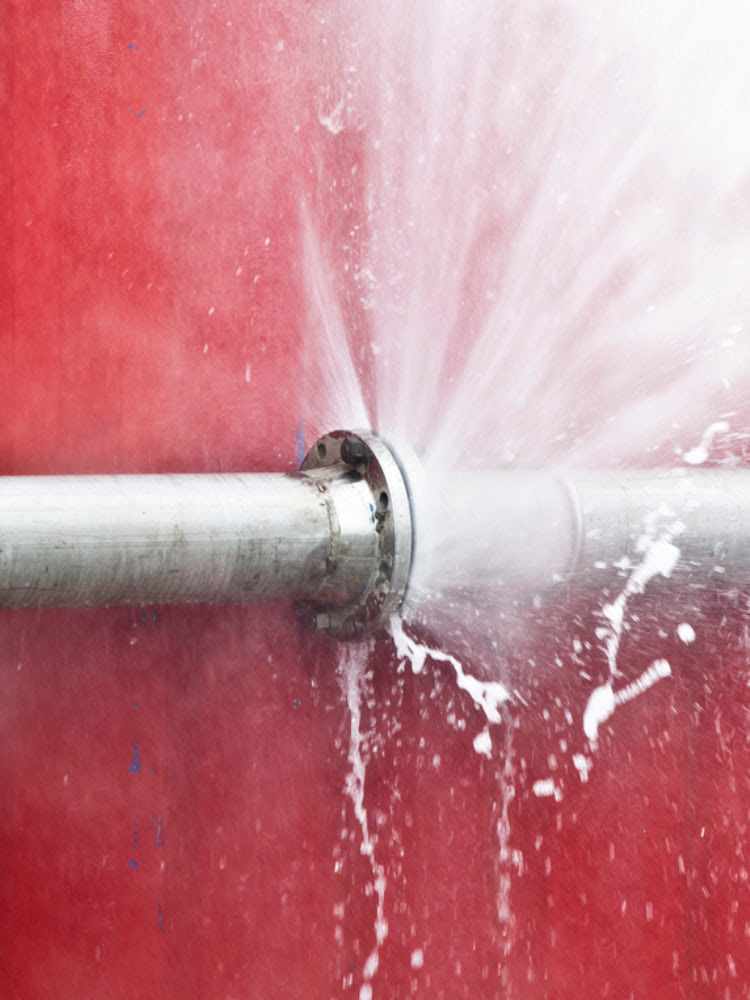We've uncovered the article on How to detect water leaks in your home down the page on the internet and felt it made sense to talk about it with you on my blog.

Leakages not just cause waste of water however can additionally cause unneeded damage to your home as well as promote undesirable organic growth. By looking and understanding for day-to-day situations that trigger leaks, you can protect your home from future leaks as well as unneeded damages.
Instant temperature modifications.
Severe temperature level adjustments in our pipelines can cause them to increase as well as get suddenly. This growth and contraction might trigger cracks in the pipelines, especially if the temperature level are below freezing. It would be best if you watched on just how your plumbing functions. The visibility of the formerly mentioned scenarios frequently shows a high threat.
Rusty water supply
As time passes by, your plumbing system ages and also deterioration such as rust may start eating away the pipelines. This may be the cause of staining or warping on your water pipes. This asks for an assessment with your plumber right away. Consider replacing the pipelines since they are at a greater threat of rust than the more recent designs if our plumbing system is old.
Defective Pipe Joints
The factor at which your pipes link is regularly the weakest web link in the waterline. Pipeline joints can wear away with time, causing water leaks. The bulk of pipe joints are not conveniently noticeable. If you have noisy pipes that make ticking or banging noises, especially when the hot water is switched on, your pipeline joints are most likely under a great deal of stress. It is recommended to have your plumber examine your system annually.
Elbowing in roots
Many water leaks start outside the house instead than inside it. You could notice damp spots or sinkholes in your yard, and that may imply that tree origins are getting into water lines causing water to permeate out.
Poor Water Connectors
At times, a leak can be triggered by loosened tubes and also pipes that supply your appliances. Most of the time, changing is what creates the loose water Links. You might discover in the case of a washing device, a hose might spring a leakage due to trembling during the spin cycle. In case of a water connections leak, you may notice water running directly from the supply line or puddles around your home appliances.
Obstructed Drains
Blocked drains pipes may be irritating and also inconveniencing, but they can sometimes end up triggering an overflow resulting in rupture pipelines. Keep eliminating any type of materials that might decrease your drains that can block them to prevent such troubles.
All the above are root causes of leakages but not all water leaks arise from plumbing leaks; some leaks might come from roofing system leakages. All leakages need to be repaired immediately to prevent water damages.
Leakages not only create waste of water but can also cause unnecessary damage to your house as well as promote unwanted organic growth. By looking and also understanding for daily situations that create leaks, you can secure your house from future leaks and also unnecessary damage. Today, we will look at 6 leak creates that may be triggering your pipes to drip.
At times, a leak can be triggered by loosened hose pipes and pipes that supply your devices. In instance of a water connections leakage, you might discover water running directly from the supply line or puddles around your appliances.
How To Check For Water Leak In Your Home
How To Check for Leaks
The average household's leaks can account for nearly 10,000 gallons of water wasted every year and ten percent of homes have leaks that waste 90 gallons or more per day. Common types of leaks found in the home are worn toilet flappers, dripping faucets, and other leaking valves. These types of leaks are often easy to fix, requiring only a few tools and hardware that can pay for themselves in water savings. Fixing easily corrected household water leaks can save homeowners about 10 percent on their water bills.
To check for leaks in your home, you first need to determine whether you're wasting water and then identify the source of the leak. Here are some tips for finding leaks:
Take a look at your water usage during a colder month, such as January or February. If a family of four exceeds 12,000 gallons per month, there are serious leaks.
Check your water meter before and after a two-hour period when no water is being used. If the meter changes at all, you probably have a leak.
Identify toilet leaks by placing a drop of food coloring in the toilet tank. If any color shows up in the bowl after 10 minutes, you have a leak. (Be sure to flush immediately after the experiment to avoid staining the tank.)
Examine faucet gaskets and pipe fittings for any water on the outside of the pipe to check for surface leaks.
Undetected water leaks can happen without the home or business owner even realizing. If you suspect a water leak, but not able to find the source. It is time to contact a professional water leak detection service, The Leak Doctor.
How To Find a Water Leak In Your Home
https://www.leakdoctor.com/blog/How-To-Check-For-Water-Leak-In-Your-Home_AE197.html

I came across that page about How to Find Water Leaks when doing research the internet. Are you aware of somebody who is in to Common Water Leaks In House? Why not share it. Thank you for your time spent reading it.
Click Here